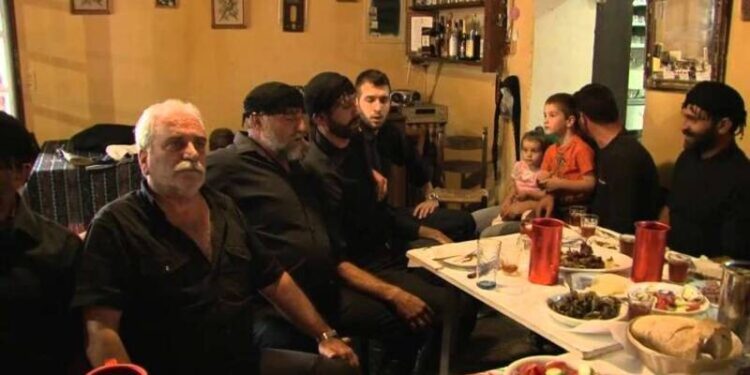Crete, the largest of the Greek islands, is a land steeped in history, mythology, and rich cultural traditions. For travelers seeking more than just a picturesque landscape, cultural exchange programs with Cretan locals offer an immersive experience that goes beyond typical tourism. These programs provide a unique opportunity to live like a local, participate in traditional activities, and gain a deep understanding of Cretan life, customs, and heritage. Here, we explore the various aspects of these cultural exchange programs and how they enrich both visitors and hosts.
The Essence of Cultural Exchange
Cultural exchange programs are designed to foster mutual understanding and respect between visitors and local communities. In Crete, these programs often involve living with local families, participating in daily activities, and engaging in cultural practices. This immersive experience allows visitors to see the island through the eyes of its residents, learning firsthand about their ways of life, values, and traditions.
Homestays and Family Life
One of the most rewarding aspects of cultural exchange programs in Crete is the opportunity to stay with local families. Homestays provide an intimate glimpse into the daily lives of Cretans, offering a chance to experience their renowned hospitality, known as “philoxenia.” Visitors are welcomed into the home as part of the family, participating in everyday activities such as cooking, farming, and social gatherings.
- Daily Routines and Local Customs
Living with a Cretan family means adapting to their daily routines and customs. This might include early morning trips to the local market, preparing traditional meals together, and enjoying leisurely afternoon siestas. Visitors learn about the importance of family and community in Cretan culture, as well as the island’s deep connection to its natural surroundings.
- Cretan Cuisine
Food is a central element of Cretan culture, and cooking together is a common activity in cultural exchange programs. Visitors have the chance to learn traditional recipes and cooking techniques, using fresh, local ingredients. From making dolmades (stuffed grape leaves) and baking fresh bread to preparing lamb with wild herbs and enjoying homemade cheeses, the culinary experience is both educational and delicious.
Traditional Activities and Skills
Cultural exchange programs often include participation in traditional activities and skills that are integral to Cretan life. These activities not only preserve age-old practices but also provide a hands-on learning experience for visitors.
- Agriculture and Farming
Agriculture has been the backbone of Cretan life for millennia. Participants in cultural exchange programs may find themselves involved in seasonal farming activities such as olive picking, grape harvesting, or tending to vegetable gardens. Learning about sustainable farming practices and the significance of organic agriculture in Crete offers valuable insights into the island’s economy and environmental stewardship.
- Artisanal Crafts
Crete is renowned for its artisanal crafts, including pottery, weaving, and leatherwork. Cultural exchange programs often include workshops where visitors can learn these traditional skills from local artisans. Creating a piece of pottery, weaving a Cretan textile, or crafting a leather item provides a tangible connection to the island’s artistic heritage.
Festivals and Celebrations
Participating in local festivals and celebrations is a highlight of cultural exchange programs in Crete. These events offer a vibrant display of the island’s cultural richness and communal spirit.
- Religious Festivals
Religious festivals, such as Easter and the Feast of the Assumption, are celebrated with great fervor in Crete. Visitors can join in the processions, attend church services, and participate in communal feasts that often feature traditional music and dance. These festivals provide a deep insight into the spiritual life of Cretans and their strong sense of community.
- Cultural Events
Throughout the year, Crete hosts numerous cultural events, including music and dance festivals, theater performances, and traditional fairs. Participating in these events allows visitors to experience the island’s cultural vibrancy firsthand. They can learn traditional dances, listen to Cretan music, and even try their hand at playing traditional instruments like the lyra or laouto.
Language and Storytelling
Language is a vital part of cultural exchange. While many Cretans speak English, learning a few phrases in Greek can enhance the experience. Additionally, storytelling is an important tradition in Crete, with locals often sharing myths, legends, and personal anecdotes that provide a richer understanding of the island’s history and culture.
- Language Lessons
Many cultural exchange programs include basic language lessons, helping visitors communicate more effectively and connect more deeply with their hosts. Learning Greek greetings, expressions, and common phrases can make interactions more meaningful and enjoyable.
- Storytelling Sessions
Storytelling sessions, often held around a table with food and drink, allow visitors to hear fascinating tales from Crete’s past. These stories, ranging from ancient myths to modern-day legends, offer a window into the island’s collective memory and cultural identity.
Benefits of Cultural Exchange
Cultural exchange programs in Crete benefit both visitors and locals. Visitors gain a deeper appreciation for Cretan culture, forming lasting memories and friendships. For locals, these programs provide an opportunity to share their heritage, promote cultural preservation, and sometimes gain economic benefits through sustainable tourism.
Conclusion
Cultural exchange programs with Cretan locals offer a unique and enriching way to experience the island’s rich heritage. Through homestays, participation in traditional activities, and engagement in local festivals, visitors can immerse themselves in the authentic rhythms of Cretan life. These programs foster mutual understanding and respect, creating meaningful connections that go beyond the surface of typical tourism. Whether you are learning to cook a traditional meal, harvesting olives, or dancing at a local festival, the experience of living like a Cretan is both transformative and unforgettable.


